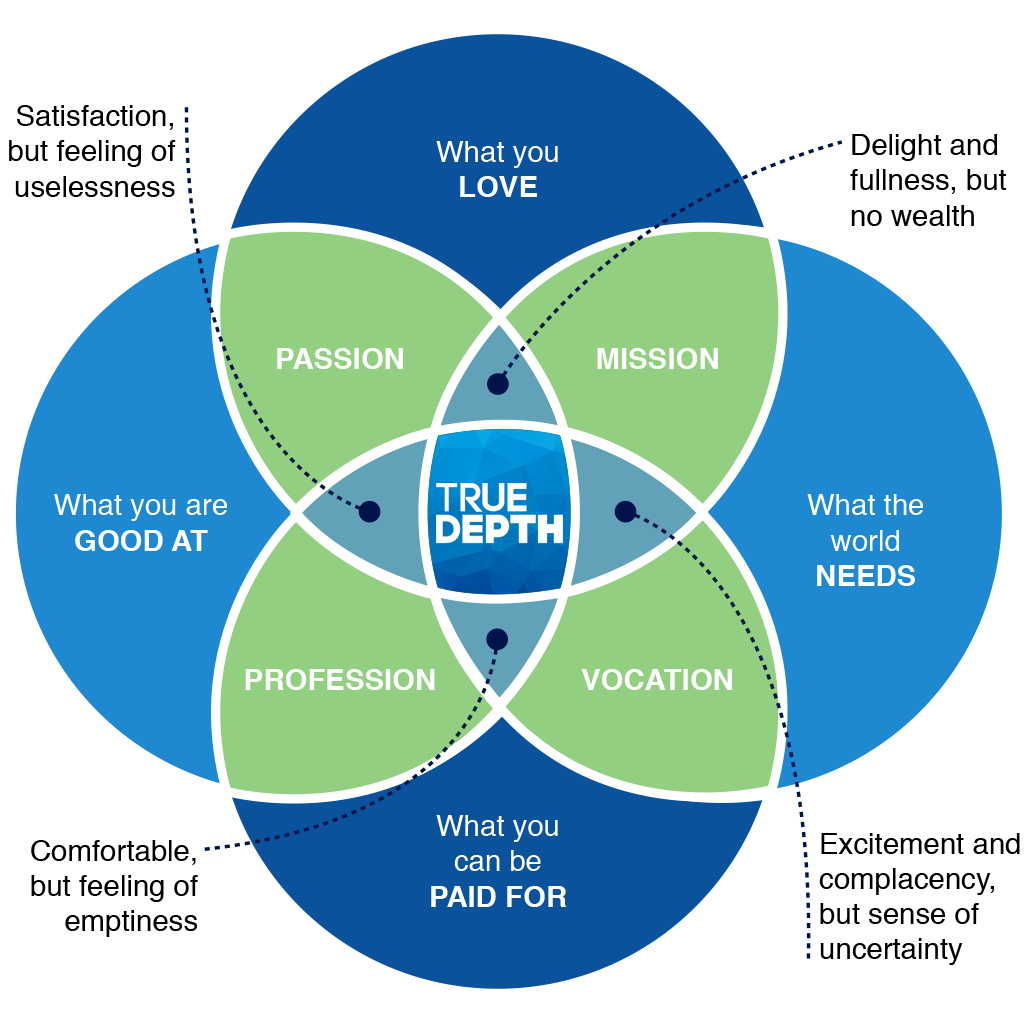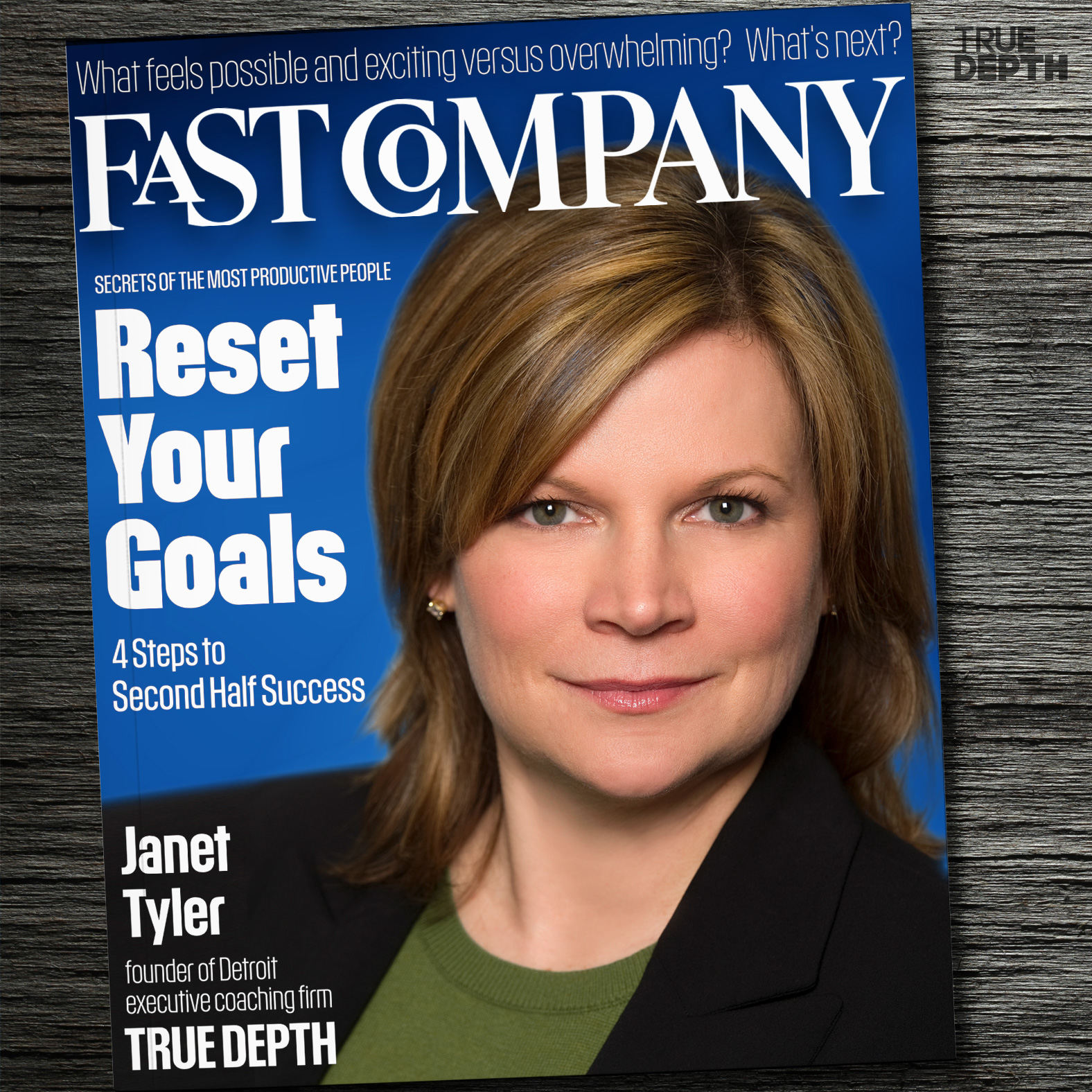As an executive coach, goal-setting is a significant portion of my work with clients. Midway…
WHY ‘WHY’ MATTERS: Rediscovering Purpose During Career Transition
“What do you do?” is a standard, accepted opening conversational gambit when meeting new people at parties. This high-level, career conversation is quite typical and we are all used to answering this question in most networking settings.
“Why do you do it?” isn’t anywhere near as popular. If you want to make people feel comfortable and at ease, I suggest you don’t ask this question – not right away anyway.
If, on the other hand, you want them to stop short and consider the trajectory their career or their life is on, it’s the single most important question you can ask – but chances are they won’t thank you for it. After all, most of us never ask it of ourselves – and if it starts to bubble up from our subconscious, we do our best to push it back down. Especially during times of career transition, digging deeper into our true purpose can be challenging. Questions of purpose tend to be very uncomfortable because in our heart of hearts we fear we may not have a valid one. That’s what can happen when we don’t take the time early in our careers to carefully consider our career choices. It’s also why so many articles are available when you Google “midlife career crisis”.
As an executive coach, I encounter many professionals who say things like “I was simply in the right place at the right time,” or “I don’t really know how I got here – I just know I worked my butt off to get here.” As we enter midlife, many of us find that our jobs no longer “fit” right.
Like a pair of old shoes, our jobs just don’t feel the same as they once did, or we seemed to have outgrown the jobs we used to love. When that happens, the challenge of selecting a new career can be crippling and sometimes staying in the same career can be just as debilitating in midlife.
Failing to ask ourselves “why do I do this job?” has consequences. Some of us tend to stay stuck in ruts for months, years, even entire lifetimes, being where we don’t belong, doing things we shouldn’t do – seemingly locked into bad jobs, bad relationships, and bad lifestyles. All because we shy away from asking ourselves the big question: “Why?”
Why matters.
Most of us wouldn’t begin a long trip without a destination clearly in mind, as well as at least some idea of how to get there. Unfortunately, too many people don’t apply that same requirement to their careers or their lives. It isn’t a surprise when they wind up where they never intended or wanted to be. Why is the key to determining both the destination and the driving directions: It’s the compelling reason for undertaking the trip in the first place.
The Japanese concept of ikigai, which translates to “reason for being,” provides one of the best summaries I’ve ever seen of this principle.

According to this concept, the right reason for being – the right “why” – is a combination of four elements:
- What you’re good at
- What you love
- What the world needs
- What you can be paid for
Located at the center of the image, ikigai is the “sweet spot” – the place where an individual ‘s activities combine all four of these principles. Instead of ikigai, I call it your “True Depth”, others may refer to this concept as your mission or life purpose. According to this concept, your true depth is a state of harmony and balance in which a person can work and live with clear direction, focus, energy, and purpose, experiencing a rich sense of meaning that fuels continued effort and steady progress.
The graphic also illustrates the hazards of occupying a space outside of these four concentric circles. When a person’s activities don’t include one or more of the four essential principles, harmony, purpose, and well-being are lost in various ways. What happens when you pursue something you’re good at but which the world doesn’t need? Or when you focus on making money without paying attention to doing what you love? Direction, motivation, satisfaction and well-being start to fade away – with the reason for being (the most important one) leading the pack.
We aren’t usually taught to consider our ikigai in our schools, families or religious institutions. Subtly, we’re led to focus on the appearance of success, rather than its essence. We focus on position and possessions without taking passion and purpose into account. The good news is that we always have a choice, at whatever stage of life we happen to be in: We can start to answer that uncomfortable “why” question – and if our answers aren’t satisfying, we can change course.
The closer we move to that ikigai center where the four principles are in balance, the more satisfied, capable, and successful we become – and we gain the power to make meaningful progress towards our true destinies. Slow down and pause before you make the next big career decision and consider ikigai to get to your own “True Depth”.

